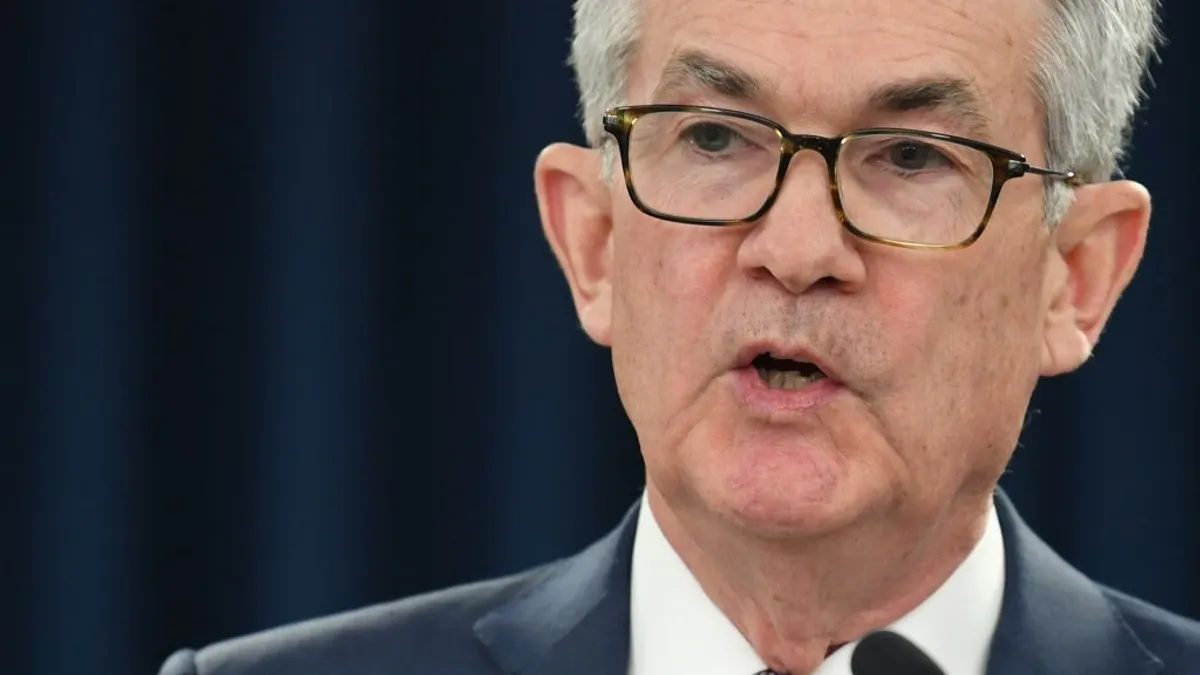Editor’s note: This story is part of a series on the trends that will shape the industry in 2021. You can find all the articles on our trendline.
CFOs this year can probably refocus some of their energy away from coping with the pandemic and toward the challenges and opportunities posed by changes in technology, regulation and other trends.
Some changes are outside a CFO's control, such as the economic outlook or shifts in oversight and tax policy under the incoming Biden administration.
Other trends are within CFOs' wheelhouse, and are easier to control. Here's a look at five of these trends.
1. Increased pressure to adopt ESG metrics
Companies should consider preparing for greater scrutiny on environmental, social and governance (ESG) sustainability metrics from investors, regulators and the public.
"With ESG disclosure becoming mainstream, CFOs, particularly those of large listed companies, will have to field an increasing number of questions from their stakeholders relating to their respective organization's ESG performance," Shailendra Gupta, CFO of Acuity Knowledge Partners, a provider of research and analysis to financial services firms, said.
ESG metric usage is growing. The proportion of companies reporting on their operational sustainability rose to 80% in 2020 from 75% in 2019, according to a KPMG survey.
The pandemic, economic uncertainty and social and racial injustice have prompted companies to accelerate changes to their ESG priorities, according to a Willis Towers Watson survey of boards of directors in North America, Europe, Asia, Africa and the Middle East.
Among the respondents at 168 organizations, 78% plan to alter their use of ESG in executive incentive plans during the next three years, and 41% plan to introduce ESG measures into their long-term incentive plans during the same period.
Nearly three quarters of North American respondents have implemented at least one initiative to promote inclusion and diversity at their organizations, with another quarter planning or considering doing so.
Depending on their business, companies may need to consider providing performance metrics on topics ranging from climate change and human rights to data privacy and board competence, Gupta said in a written response to questions.
Several groups are pushing for the adoption of different ESG reporting standards, complicating efforts by companies to achieve uniformity and ensure buy-in by stakeholders. The organizations include the Sustainability Accounting Standards Board (SASB), the Global Reporting Initiative (GRI) and the Task Force on Climate-related Financial Disclosures (TCFD).
Two-thirds of the top 100 companies and three-fourths of other large companies use GRI's reporting framework, while 20% of companies follow the system recommended by TCFD.
While a consensus gels on a common standard, companies should focus on building robust systems for collecting ESG data similar to their current mechanisms for gathering financial data, Gupta said.
2. The countdown to LIBOR's end will grow louder
Many CFOs this year may need to give a higher priority to the shift away from the London Interbank Offered Rate (LIBOR), the benchmark for trillions of dollars in business loans, derivatives and other financial contracts worldwide.
The clock is ticking — regulators have set Dec. 31 as the deadline for using alternative reference rates in new contracts, and June 30, 2023, for the transition away from LIBOR in existing contracts.
The stakes of the phase-out of LIBOR are high. At many companies, LIBOR is woven into an array of financial contracts and core operations such as valuation, accounting, tax and debt management. Some debt instruments are held by hundreds of investors who will need to agree on any modifications.
"Given consumer protection, litigation, and reputation risks, the agencies believe entering into new contracts that use USD LIBOR as a reference rate after December 31, 2021, would create safety and soundness risks," the Federal Reserve and other U.S. regulators said in a Nov. 30 statement.
To avoid disruption, financial executives need to play a central role in identifying their company's vulnerabilities and switching to alternative rates.
Adoption of the alternative rate favored by US regulators — the Secured Overnight Financing Rate (SOFR) — has accelerated during the past several months but, because of some disadvantages, is far from eclipsing LIBOR.
SOFR is based on overnight repurchase agreements secured by Treasuries and, unlike LIBOR, does not enable treasurers to make forward-looking rate calculations. LIBOR is based on London banks' estimates of what they would be charged when borrowing from other banks. The LIBOR rate can be forecast three, six and 12 months into the future.
Financial executives should ensure their entire organizations understand the impact on risk and funding from the adoption of alternative reference rates, Pieter van Vredenburch, principal at Market Alpha Advisors, said.
"CFOs need to make sure that their IT and risk management departments are keeping up with the transition timelines," van Vredenburch said. "If a firm is unprepared, it could create major problems."
3. Targeted, AI-assisted zero-based budgeting will outlast the pandemic
When COVID-19 blindsided CFOs last year, many of them seized on zero-based budgeting (ZBB) as a time-tested tool for cutting costs.
In a Gartner survey in April of 300 global finance leaders, 26% anticipated using ZBB in response to the pandemic. CFOs scored budgetary "quick wins" by shrinking planned spending for time and entertainment, leadership events and off-sites, capital expenditures, and hiring, Gartner said.
But today, ZBB is not your grandfather's blank-sheet budgeting procedure, circa 1977. Financial professionals are deploying AI and cloud platforms in efficient, surgical scrutiny of company spending.
By using digital tools, CFOs parse vast amounts of business unit data based on cost category or cost center, identifying opportunities for streamlining and achieving strategic, targeted savings. Analytics tools show how budget changes would alter company performance depending on various economic or business scenarios. Workflow apps speed review and approval.
The upshot: financial professionals avoid the vast amounts of time and effort needed for gathering, organizing and analyzing data that ZBB previously entailed. They can more easily realize ZBB's goal to, according to Gartner, "rightsize budgets and shift resources toward value-added activities aligned to reprioritized business outcomes."
ZBB "is the best type of financial planning, as long as the annual ramifications are not compounding — meaning, if you don't spend what you planned, you aren't losing future opportunities," Catherine Dahl, CEO of accounts payable SaaS provider Beanworks, said.
But ZBB can backfire and risk causing a downward spiral in performance if CFOs lose sight of its primary objective. "The way many organizations apply ZBB to cost often misses the realization of business value," Gartner said. "Without value, cuts must continue."
Budgets should adapt to new circumstances, especially in uncertain times like now, Dahl said. "At some point in 2021, the economy will likely pick up; static budgets will crush organizations in these conditions."
4. CFOs will try to expand use of real-time data
The pandemic underscored the importance of credible real-time data for fast decision making. CFOs will likely spend part of 2021 upgrading their preparation for the next out-of-the-blue crisis.
They apparently have a lot of work to do.
Ninety-nine percent of CFOs want to use real-time data when making decisions but only 16% believe they are fully capable of doing so, an Accenture survey found. They are channeling, on average, 33% of their department budgets toward building real-time operations and processes, Accenture found.
Financial professionals are most concerned this year about the potential impact of rising interest rates, disruption from the pandemic, an economic downturn and the hiring and retention of talent, according to Accenture. Only 11% of survey respondents expressed confidence in their preparedness for a recession.
Sixty-eight percent of the CFOs surveyed believe AI, machine learning algorithms and a range of real-time data sets are essential for improving data accuracy and refining forecasting models, Accenture said. It surveyed 450 CFOs and other financial leaders at companies in the U.S. and Europe with at least $1 billion in annual revenue.
Gaining capabilities such as real-time scenario planning "enables finance leaders to optimize cash flow, forecast with greater accuracy and integrate planning across the business," according to Accenture.
5. CFOs will try to find the best post-pandemic balance of remote and in-office work
Financial professionals will be core decision-makers in what is shaping up to be an especially complex, high-stakes challenge in 2021: determining the timing and pace for a return to the office.
CFOs will need to huddle with C-suite colleagues and track a range of hard and soft metrics beyond the baseline savings gained by shuttering facilities. When eying potential cost cuts and spending, CFOs would do well to:
- Compare the productivity levels of remote and in-office work;
- Reduce the higher costs of IT support for remote work and minimize cybersecurity risks;
- Determine the gains from a remote work policy when expanding the pool of potential employees beyond a company's usual geography;
- Measure employee anxiety and feelings of isolation and, if necessary, strengthen programs to ensure well-being;
- Gauge the risks from a return to the office and the budget needed for safeguarding employee health.
Facing a broad range of complex issues, financial professionals can't seize on a one-size-fits-all solution, according to interviews with CFOs. They will need to prepare for different public health scenarios and adjust their plans throughout 2021.
"We are in new terrain," Shane Hansen, CFO at FP&A SaaS company Planful told CFO Dive. "We talk a lot about continuous planning, and I think this is one of those areas where we're going to have to be agile in our approach."
A CFO will need to closely collaborate with the chief human resource officer and others on the executive leadership team, Hansen said. "It's really important to get everybody on the same page when making a decision based on a holistic set of data as opposed to just the financial metrics."
Many financial executives will probably prefer a mix of remote and in-office work, Steven Springsteel, CFO at human capital management SaaS company Betterworks, said. This could mean shrinking office space and having employees work primarily from home while occasionally "hoteling" at the office for team or client meetings, he said.
So far, Betterworks has taken a hybrid approach, Springsteel said. It decided last year not to renew the lease on its headquarters in Redwood City, CA, while keeping open its New York City office, which is dedicated primarily to sales and customer service.
Some CFOs may favor winding down their permanent work space altogether, he said.
"Going back to the office is not a true black-or-white question," Springsteel said. A CFO needs to ask, "do people feel comfortable, do they feel safe?"






















